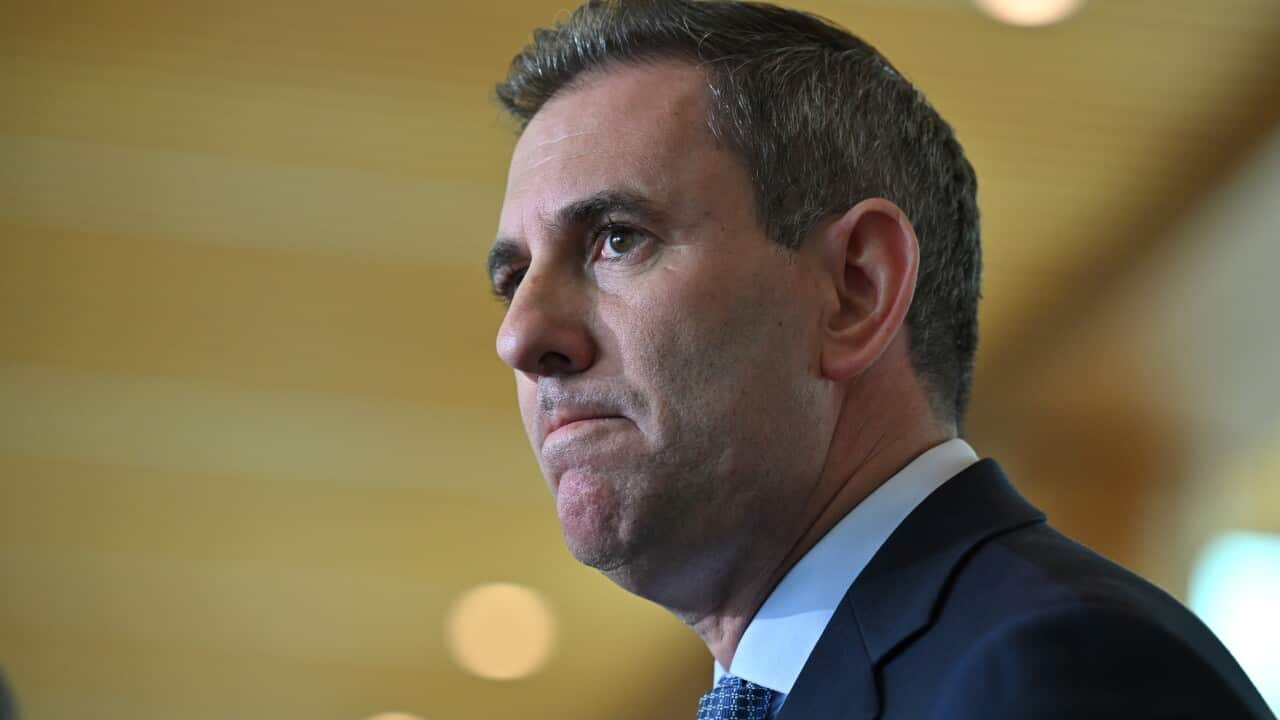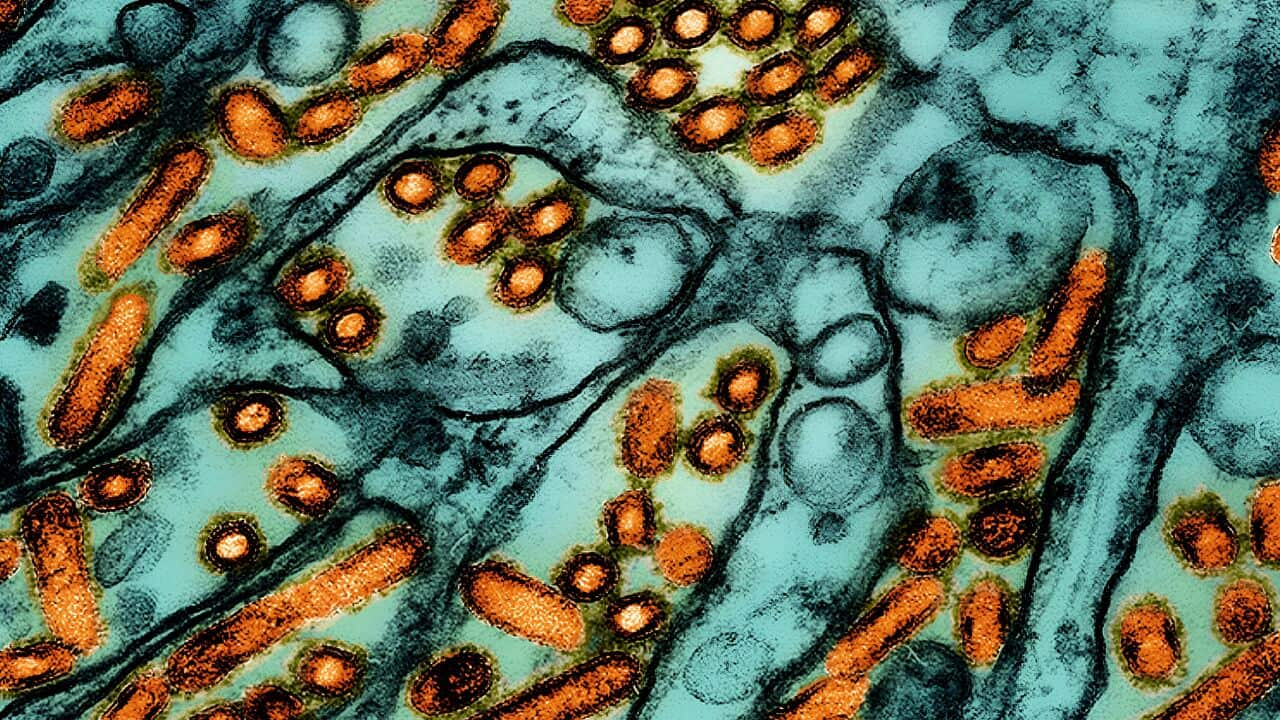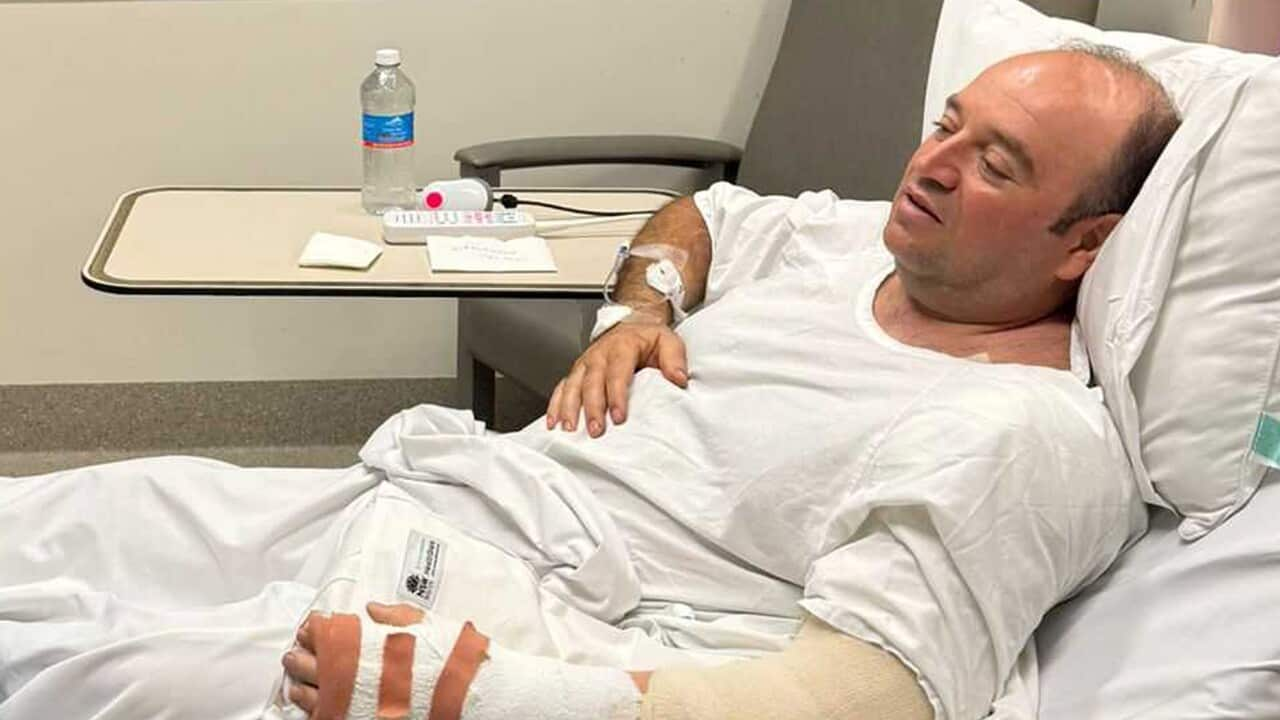Key Points
- Emergency crews on standby as east coast storm hits
- High-risk Australians eligible for free lung-cancer screening
- Carlos Alcaraz beats Fabio Fognini at Wimbledon
TRANSCRIPT
What's called a "bomb cyclone" is set to dump more than 100 millimetres of rain in the space of hours on Australia's east coast.
Meteorologists say the fast-developing storm Sydney will impact significant stretches of the New South Wales coast today and tomorrow.
It's already sparked heavy rain, strong winds and hazardous surf - and up to 120 millimetres of rain is expected to lash Greater Sydney alone over the next six hours.
SES state operations manager Dallas Burnes says emergency calls have already started to come through - as the weather system intensifies.
He says the mid north coast region is an area of concern for emergency services because of the soil is still saturated from the May floods.
Helen Reid - from the Bureau of Meteorology - says flash flooding is also a risk for communities.
"There is isolated heavy rainfall, which may lead to flash flooding along the coastal fringe, north of Ulladulla with six-hourly totals between 70-90 millimetres up to 120 millimetres in isolated locations in that six-hour period. Towns impacted include Armidale, Newcastle, Gosford, Sydney, Wollongong, Nowra and Batemans Bay. Locally, destructive wind gusts of 125 kilometres an hour - also possible from midday on Tuesday for exposed coastal areas between Bondi and Wollongong."
---
From today, Australians at high risk of developing lung cancer can undergo a screening test - free-of-charge through Medicare.
Australia’s first new national cancer screening program in nearly 20 years is being rolled out, targeting people aged between 50 and 70 who have a history of smoking.
Aboriginal and Torres Strait Islander people are in particular, being encouraged to use the screening program, as lung cancer is the most common cause of cancer death among First Nations Australians.
The CEO of the Lung Foundation Australia, Mark Brooke, says early screening aims to improve the survival rate outcomes.
"Australia stands as leaders globally. We will be one of the first countries in the world to have a National Lung Cancer Screening Program that will look across Australia, and particularly because it's been co-designed with Aboriginal and Torres Strait Islander people, will support those people who have often been forgotten."
---
Victorian premier Jacinta Allan says the state's Voice to parliament won't be written into its constitution.
The Premier says it will not require constitutional change, unlike the failed Federal voice proposal.
The government has confirmed the First People's Assembly will be a permanent fixture and will be made up of 33 elected members who will provide advice on laws and policies that affect Indigenous communities in Victoria, from health and education to crime and development.
Ms Allan says the voice to parliament - as well as ongoing treaty negotiations - aim to enable First Nations people to have a better say in the policies that affect them.
"The treaty process and outcome is grounded in that pretty simple common sense approach, that when you listen to people who are affected by policies and programs, when you involve them in the processes, you get better outcomes."
---
There are renewed calls for a Gaza ceasefire, after another deadly 24 hours in the enclave.
Local officials and medical staff say Israeli attacks have killed at least 72 Palestinians, including 21 people at a crowded seafront rest area near Gaza City.
Earlier, Israel's military issued evacuation orders for those in northern Gaza, as it warned of intensifying military activity.
UN spokesperson Stéphane Dujarric says there needs to be a swift resolution to end the violence.
"The Secretary-General is alarmed by the new evacuation orders in northern Gaza, which have once again displaced tens of thousands of people. The Secretary-General condemns the continued loss of civilian life resulting from Israeli airstrikes and other attacks. All parties must comply fully with international law at all times. The Secretary-General welcomes the continued efforts by the mediators and reiterates his appeal to the parties to urgently reach a permanent ceasefire."
Meanwhile, a US official says President Donald Trump will host Israeli Prime Minister Benjamin Netanyahu for talks at the White House next Monday.
---
In tennis, Carlos Alcaraz has survived Wimbledon's hottest-ever opening day, eventually triumphing against Fabio Fognini in five sets.
With air temperatures soaring to 32 degrees Celsius, the defending champion needed more than four hours to subdue veteran Fognini.
Only two defending men's champions had ever lost in the first round at Wimbledon, but there were moments when Alcaraz looked in danger of joining compatriot Manuel Santana on that short list.
The last set was interrupted, after a spectator became unwell in the heat and required assistance.
Alcaraz charmed the crowd by offering his water bottle to the distressed fan.
He says he was nervous before the match - and he is relieved to get through to the next round.
"I've been playing really, really tough matches the last year, the last year in this tournament. Just really proud that I always find a way. Today I did it, even though Fabio was playing a great tennis. Just really proud to overcome the problem, to overcome the tough moments, and found my way."
---
Meanwhile, Jordan Thompson is the only Australian to advance to the second round at Wimbledon, after day one of the tournament.
The 31-year-old beat Czech player, Vit Kopriva in a match lasting three hours and 37 minutes.
Seven other Australians were eliminated: including Ajla Tomljanovic, Olivia Gadecki, Chris O’Connell, and James Duckworth.
Alexei Popyrin lost to English wildcard Arthur Fery - Fery's first win in a grand slam.
Nine Australians will be in action on day two, including Alex de Minaur, Maya Joint and Daria Kasatkina.









